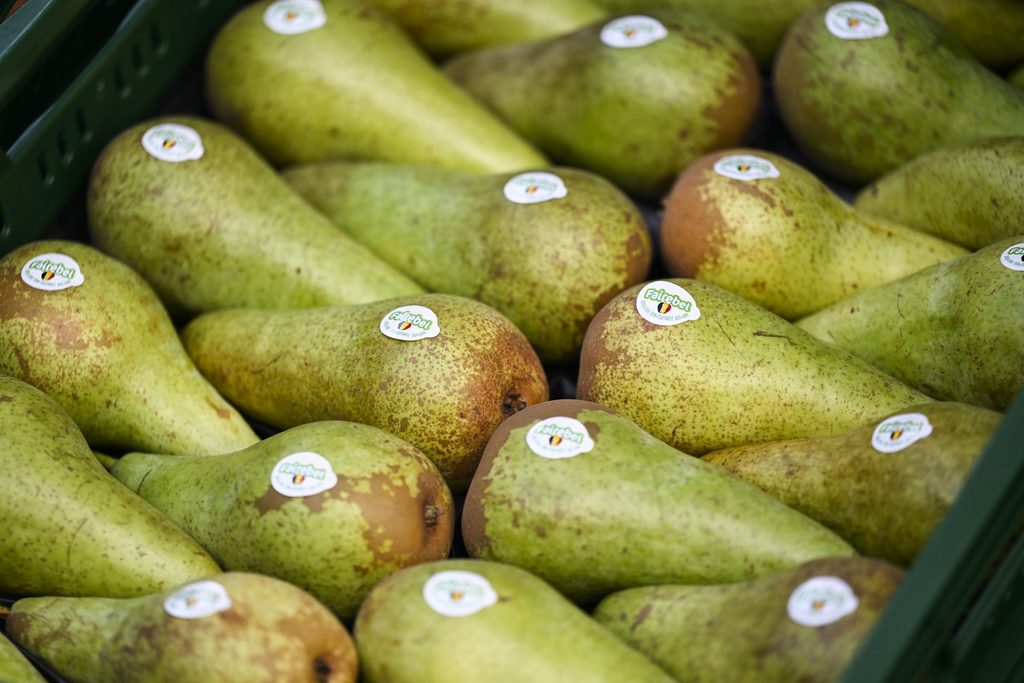KU Leuven University is exploring innovative techniques to ensure the sustainability of pear production in the face of climate change.
Belgium officially became the EU's largest pear producer this year, but experts worry whether the country's famed Limburg pears will survive in the decades to come.
To address this concern, KU Leuven, in collaboration with UHasselt and the Research Centre for Fruit Growing, is conducting a comprehensive study into the potential ramifications of climate change on future pear cultivation, professor and director of the Flemish Centre for the Preservation of Horticultural Products, Bart Nicolaï, told De Morgen.
The research team is employing cutting-edge technology known as Ecotrons, often referred to as remote time machines for climate research. These dome-shaped enclosures replicate diverse climate scenarios, encompassing factors such as precipitation, temperature, wind speed, and atmospheric CO2 levels.
By subjecting pear trees to these controlled conditions, scientists can discern precisely which weather variables impact fruit development.
Fruit X-rays and virtual pears
In a parallel effort, artificial intelligence (AI) is assuming an increasingly pivotal role in the domain of fruit farming, particularly as a tool to combat food waste.
Traditionally, when apples and pears transition from cold storage to warehouses, inspectors scrutinise them for internal defects, including cavities and browning. In a bid to streamline this process, a pioneering study has been launched, deploying X-ray technology to capture detailed images of the fruit's interior, Nicolaï explained.
The implementation of AI algorithms enables rapid analysis of these images, facilitating real-time decisions on the suitability of the fruit for sale. "However, the development of such an algorithm demands substantial data for training purposes," Nicolaï said.
To meet this requirement, a researcher spent hours using UZ Leuven's CT scanner to scan pears, generating a substantial dataset essential for algorithm refinement.
Moreover, researchers have managed to create thousands of 'virtual pears' by using AI algorithms. This extensive dataset of virtual pears serves as the foundation for an algorithm capable of assessing pear health through X-ray analysis. Significantly, the margin of error is minimal.
Related News
- Spreading the sweetness: Belgian fruits exporters look to Vietnam as emerging market
- Still getting 5 a day? High prices force Belgians to buy less fruit and veg
Although the primary focus has been on apples and pears, this pioneering methodology holds the potential for broader application across various fruits.
The intersection of climate research and AI-driven innovation in fruit farming exemplifies KU Leuven's commitment to sustainable agriculture, ensuring the continued supply of world-renowned Belgian pears and combating food waste on a global scale. As the world grapples with the multifaceted challenges of climate change and resource conservation, such pioneering efforts offer a ray of hope for the future of agriculture and food security.

